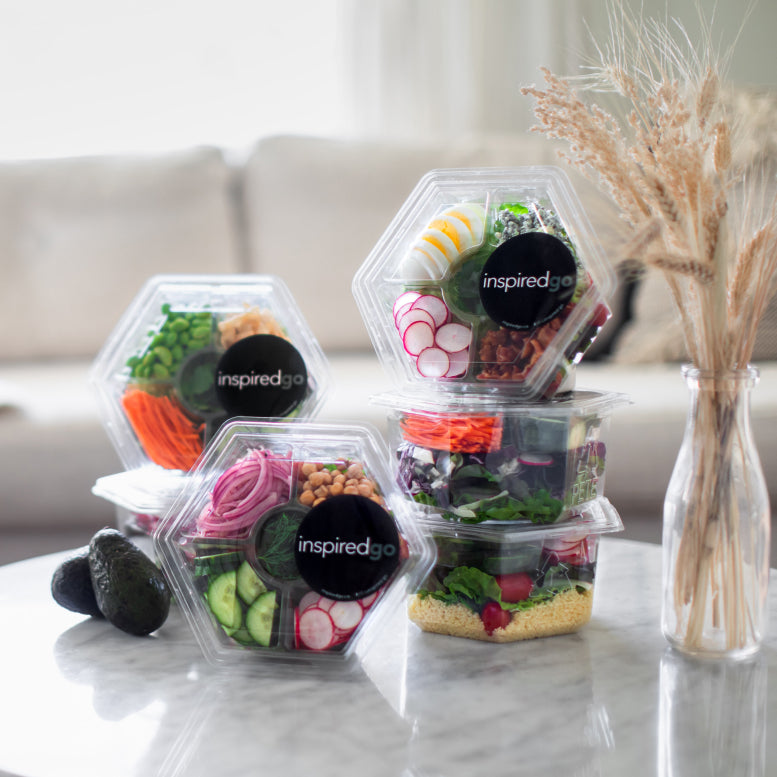Are Eggs And Cheese Allowed On Vegetarian Diet?
Table of Contents
1. Understanding Dietary Preferences: Eggs and Cheese in a Vegetarian Diet
2. Is Being Vegetarian Healthy?
3. What Are the Benefits of a Vegetarian Diet?
4. Why Is a Vegetarian Diet a Smart Choice?
1. Understanding Dietary Preferences: Eggs and Cheese in a Vegetarian Diet
When adhering to a vegetarian diet, the consumption of eggs and cheese can often stir up questions. It's worth noting that vegetarianism has various sub-categories, each with its own dietary rules and restrictions. Lacto-vegetarians, for instance, consume dairy products like cheese but abstain from eating eggs. Conversely, ovo-vegetarians include eggs in their diet but exclude dairy items. Those following a lacto-ovo vegetarian diet incorporate both eggs and cheese into their meals. However, strict vegetarians or vegans eliminate all animal products, including eggs and dairy. By understanding these nuances, individuals can tailor their dietary choices to align with their ethical, health, or environmental motivations, and enjoy a diverse array of delicious, nutrient-rich meals that satisfy their dietary requirements.
Order fresh salads today →


2. Is Being Vegetarian Healthy?
A well-planned vegetarian diet is widely regarded as one of the healthiest eating patterns, offering benefits such as improved digestion, reduced risk of chronic diseases, and enhanced energy levels. When balanced properly, vegetarian diets provide essential vitamins, minerals, fiber, and plant-based proteins. Vegetarian meal delivery services play a key role in maintaining this balance by offering pre-prepared meals crafted by nutrition experts. Meals include nutrient-dense ingredients such as leafy greens, whole grains, and plant proteins to ensure optimal health outcomes. Transparent nutritional labeling allows customers to monitor their intake and ensure they meet their dietary needs. With convenient meal deliveries, vegetarian meal services make healthy eating achievable, even for those with busy schedules.
Choose your salads and schedule delivery →
3. What Are the Benefits of a Vegetarian Diet?
Vegetarian diets offer numerous health benefits, including lower cholesterol levels, reduced blood pressure, and improved digestion. They are also associated with a decreased risk of chronic diseases such as heart disease and diabetes. Vegetarian meal delivery services simplify access to these benefits by providing nutritionally balanced, ready-to-eat meals crafted by professional chefs and nutritionists. Ingredients such as leafy greens, lentils, and whole grains are strategically included to ensure optimal nutrition. Subscription options ensure regular deliveries, eliminating dietary inconsistencies caused by busy schedules. With transparent nutritional labeling and pre-portioned servings, vegetarian meal delivery services offer a practical way to enjoy the health benefits of a plant-based diet.
Get fresh salads and snacks delivered →
4. Why Is a Vegetarian Diet a Smart Choice?
Inspired Go emphasizes the health benefits of vegetarian diets by delivering balanced, ready-to-eat vegetarian meals crafted with precision. These meals include nutrient-dense ingredients such as lentils, chickpeas, tofu, and leafy greens, providing essential vitamins, minerals, and plant-based proteins. Each dish is pre-portioned to ensure calorie control and nutritional balance, while transparent labeling offers clarity on macronutrient composition. Subscription plans allow customers to receive regular deliveries, eliminating gaps in their meal routines. Inspired Go simplifies healthy eating by offering convenient access to balanced vegetarian meals, making it easier for customers to enjoy the benefits of a plant-based diet without the need for meal prep or planning.
Try our fresh, ready-to-eat salads →
Frequently Asked Questions
A vegetarian diet focuses on plant-based foods, eliminating meat, poultry, and fish while including fruits, vegetables, grains, legumes, nuts, and seeds. Depending on the type of vegetarianism, it may also include animal-derived products like dairy and eggs. Popular variations include lacto-ovo vegetarian (includes eggs and dairy) and lacto-vegetarian (excludes eggs but includes dairy). The diet is often chosen for ethical, environmental, or health reasons and supports a nutrient-dense lifestyle when properly balanced.
Vegetarian foods include a wide variety of plant-based options like fruits, vegetables, whole grains, legumes, nuts, and seeds. Dairy products such as milk, cheese, and yogurt, as well as eggs, are included in lacto-ovo vegetarian diets. Vegetarian-friendly dishes range from hearty grain bowls and vegetable curries to pasta, soups, and salads. Many processed foods, such as chips or baked goods, can also be vegetarian, though reading labels is key to avoiding hidden animal-based ingredients.
Yes, many vegetarians eat eggs, depending on their dietary preference. Those following a lacto-ovo vegetarian diet include both eggs and dairy products, while lacto-vegetarians exclude eggs but consume dairy. Eggs are an excellent source of protein, vitamins, and minerals, making them a valuable addition to a vegetarian diet. However, vegans avoid eggs entirely, as their diet excludes all animal-derived products, including dairy and honey.
Vegetarians can meet their protein needs by incorporating a variety of plant-based and animal-free sources. Protein-rich options include legumes (lentils, chickpeas, black beans), tofu, tempeh, nuts, seeds, and whole grains like quinoa. For those who consume dairy and eggs, options like Greek yogurt, cheese, and eggs provide additional high-quality protein. Combining different plant proteins, such as rice and beans, ensures a complete amino acid profile, supporting muscle repair and overall health.
Yes, eggs and cheese are allowed on a lacto-ovo vegetarian diet, which includes both dairy products and eggs alongside plant-based foods. These ingredients are excellent sources of protein, calcium, and other essential nutrients. Lacto-vegetarians exclude eggs but include cheese and other dairy products. Vegans, however, do not consume eggs, cheese, or any other animal-derived products, focusing solely on plant-based foods and alternatives.

